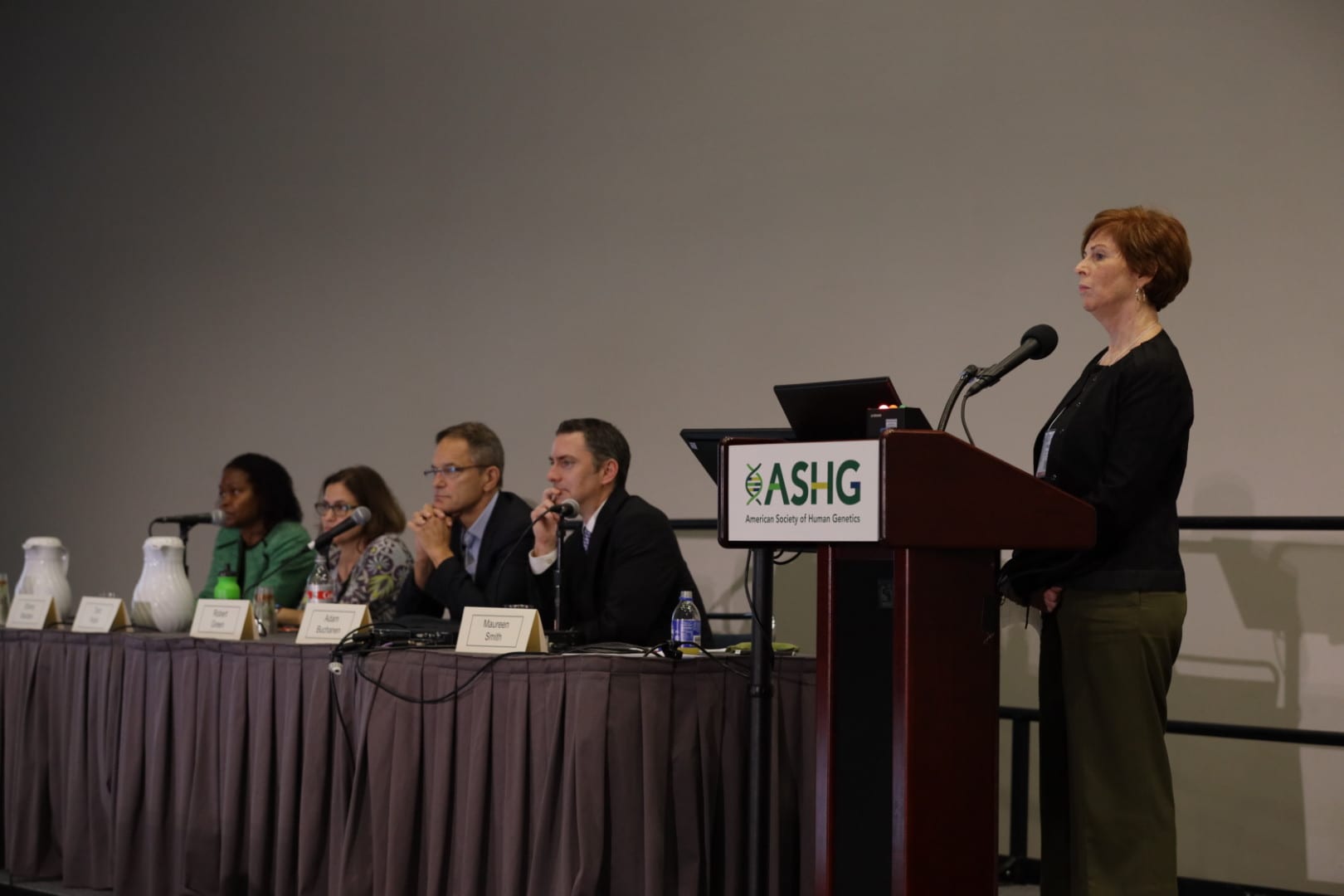Posted By: Nalini Padmanabhan, Director of Communications and Marketing, ASHG
On October 16, ASHG and the National Society of Genetic Counselors (NSGC) held a joint forum at the ASHG 2019 Annual Meeting. In the 90-minute session, titled Achieving Successful Collaborations in a Research Setting, moderator Maureen Smith, MS, CGC, and panelists discussed how researchers and genetic counselors can collaborate through grant funding.

Obtaining funding can expand your professional network and resources and improve your research portfolio, the panelists explained. Adam Buchanan, MS, MPH, CGC, kicked off the session by sharing his trajectory from genetic counselor training to a more research-oriented career. Along the way, he learned the value of starting with a real-life clinical need when articulating a research question and building out an approach to study it. Once the question has been identified, he said, important next steps include brainstorming with colleagues, assembling a research team and preliminary data, choosing a funding mechanism, and writing and revising specific aims.
Team science and a mutually respectful approach were also key themes for the next presenter, Robert Green, MD, MPH. “I have always relied on the competence of genetic counselors,” he said, describing aspects of a genetic counseling background that make counselors particularly effective as research project managers. These include strong writing and interpersonal communication, a clinical care mindset, and a deep knowledge of genomics.
Toni Pollin, MS, PhD, CGC, shared specific tips for obtaining research funding as a genetic counselor. A combination of knowledge, feedback, and good planning are critical, she explained, placing special emphasis on choosing collaborators widely and wisely. Even if difficult to hear, feedback from mentors and colleagues helps those seeking funding to strengthen their knowledge – and in so doing, strengthen their grant applications. To successfully incorporate this feedback, it is important to start early and allow plenty of time for revisions.
Rounding out the session, Ebony Madden, MSGC, PhD, walked attendees through the NIH grant review process, citing points along the way where conversation with a program officer can be especially helpful. Though they are not directly involved in scoring grant applications, program officers know the intention and goals behind funding opportunities, Dr. Madden explained. Reaching out to them can help applicants identify (and highlight) the most promising aspects of their own work, as well as respond effectively to feedback when resubmitting an application.
Missed the session and want to learn more? This session was recorded and will be available online after the Annual Meeting.
